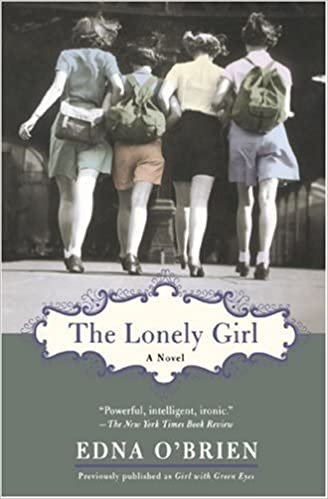It's such a pleasure following this continuing drama about two Irish country girls who are now young women dealing with very adult problems. The story picks up two years after the end of “The Country Girls” when Cait and her spirited friend Baba are living in rented accommodation in Dublin. Both are working and enjoying their status as independent women in the city free from the constraints of family and the religious school of their youth. But, while Baba is consumed with flirting and partying, Cait has recovered from her misjudged romance in the first book and now embarks on a perilous new relationship with Eugene, an older man and documentary filmmaker. They grapple with intimacy and move into his house together though it's still crowded with memories of his first wife (reminiscent of “Rebecca”). Meanwhile, a series of anonymous letters makes Cait's father aware of the perceived inappropriateness of her relations with Eugene. Suddenly she finds herself in danger of being trapped in the constrained family life she thought she'd been freed from. It's a story filled with tense conflict and complex emotions as it charts Cait's continuing development. There are also numerous deliciously funny scenes and heartbreaking moments as Cait struggles to maintain her autonomy and articulate her desires.
While the narrative is primarily concerned with Cait and Baba's current issues it's touching how Cait continues to occasionally reflects upon her childhood and lost mother. There's a tragic moment when she recalls how she never saw her mother happy or even laugh. It adds to the sense of what dreary circumstances her poor mum endured and compounds the sense of grief Cait carries about her loss. She's confronted by blatant hypocrisy from conservative members of society including a priest who excuses her father's excessive drinking because of the climate. While we spend the majority of the story with Cait we also get some interesting insights into Baba's life and how startlingly blasé she is about a pregnancy scare. It's clever though how the narrative hints at more tender emotions beneath her hard exterior especially when it comes to how desperately she wants Cait to accompany her to London. There's also the intriguing mystery of who sent the anonymous letters to Cait and her father. I'm curious if this will ever be resolved or if it will remain a malicious act from the shadows.
There's a very dramatic confrontation at Eugene's house when Cait's father and his friends attempt to retrieve her. More than the tense scene this creates, it feels like a clash between two different factions of Irish society with results which are violent and absurd. The father's cohorts express distinct nationalistic sentiments and paranoia about “foreigners”. It's also telling how both sides seem more concerned with their own self righteousness than Cait's actual welfare. Cait's continuing feelings of guilt and her sympathetic uncertainty about what she really wants in life seem only natural. Her emotional seriousness is counterbalanced so well with Baba's freewheeling attitude. Every time Baba appears her cutting dialogue, eye rolling impatience with Cait and odd pretensions are always hilarious. There are eerie parallels between the ends of the first and second novels where Cait longingly waits for a man's arrival, but this new instalment ends on a much more hopeful note. It leaves me eager to find out where their lives lead next.








